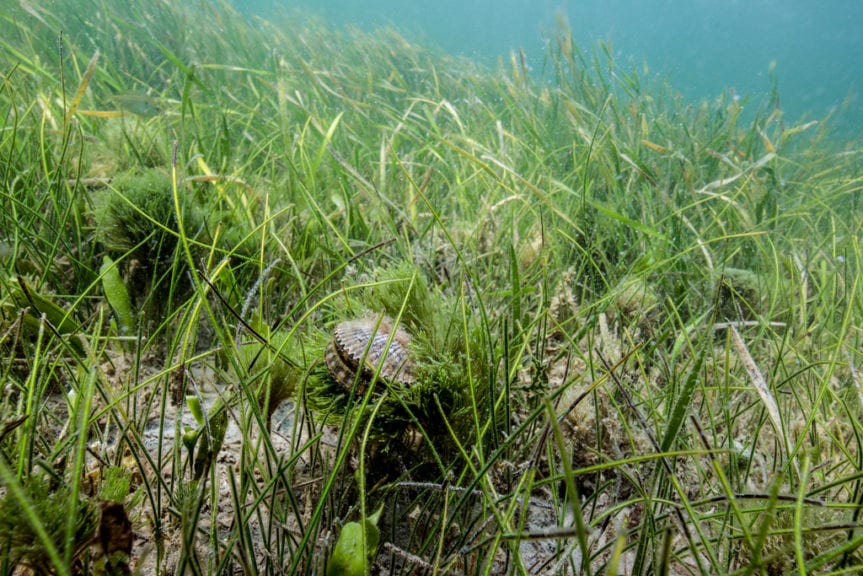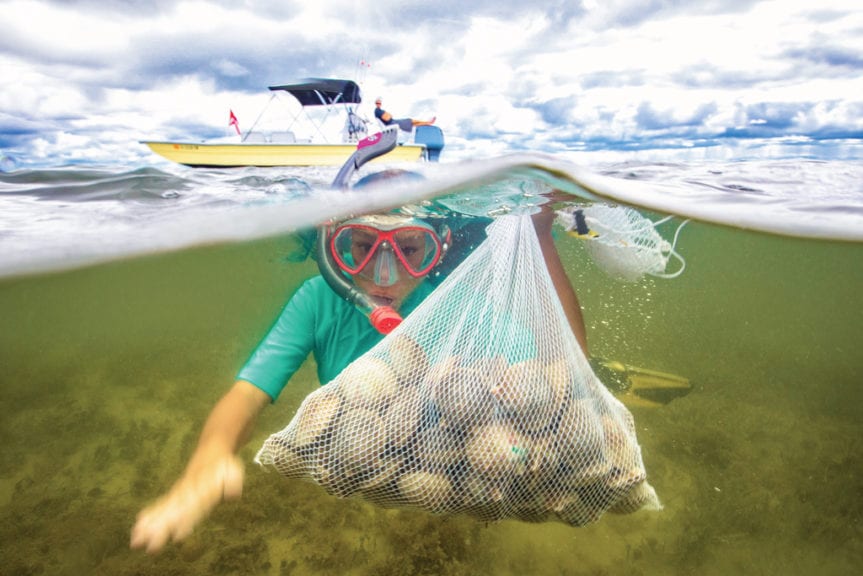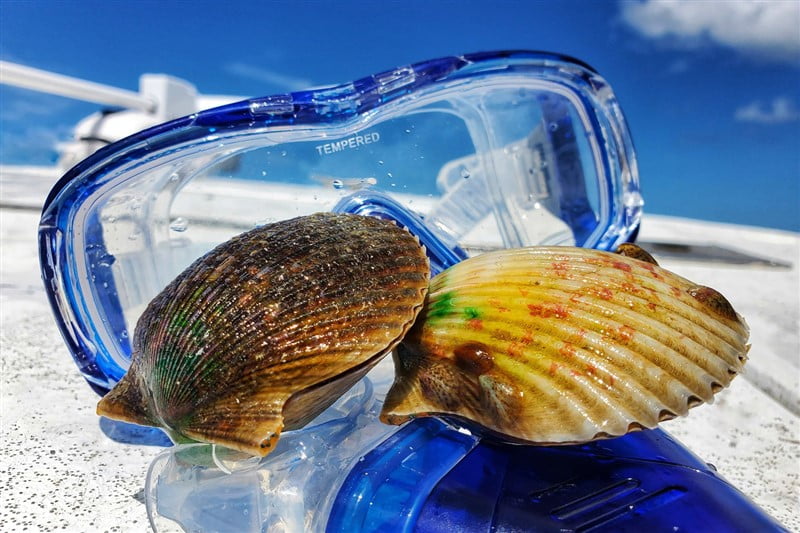<div id="c3be0912bb716eee4ca644c1dfc4ecde4"></div>The 2025 season for scalloping in the Tampa Bay Area is almost here! In our area, it starts in Citrus, Hernando, and Levy counties July 1-September 24, 2025. And then Pasco County’s season opens July 10 and runs through August 18, 2025.
If you’ve never been scalloping before, you probably have questions. We did too, so let’s get to it!
Florida's 2025 Bay Scallop Seasons:
- Levy, Citrus, Hernando Counties: July 1-Sept 24, 2025
- Pasco County: July 10-August 18, 2025
- Gulf County: August 16-September 24, 2025
- Franklin County and NW Taylor County: July 1-September 24, 2025
- Fenholloway-Suwannee River Zone: June 15-Labor Day 2025
- FWC's information page on Florida's 2025 Scalloping Season
Where can I go scalloping in the Tampa Bay Area?
Scalloping season in Florida opens in the summertime from Pasco County to the Florida Panhandle. Some of our favorite local spots are Crystal River, Homosassa, and Pasco County. In fact, you can even make a prolonged stay out of it by booking a stay and tour with Plantation on Crystal River.
Pro Tip: Weekdays are best if you want to avoid the crowds. Later in the season also tends to produce larger scallops.
One added bonus, you can even book a tour to swim with the manatees–Crystal River is one of the few spots where you can legally book a tour to swim with the beautiful and gentle animals.

What do I need to go scalloping?
If you decide to go out on your own boat, you will need a recreational saltwater fishing license. Register here. But, if you go on a guided tour like one booked with Plantation on Crystal River, they take care of that for you.
Besides your license, you'll also need snorkel gear including a mask, fins, mesh bag, snorkel and dive flag so other boaters know you are in the water. If you book a tour, your boat captain will likely take care of these items for you. Don't forget water and snacks.
Tours and charters are definitely the hassle-free way to go. Plus, they know all the secret spots on where to find the most scallops!
How do I catch a scallop?
You’ll need to look closely at the seagrass beds. Be on the lookout for the row of blue, beady looking eyes around the rim.
Scalloping is often compared to an underwater egg hunt, only more challenging because scallops can swim! That’s right! You’ll want to go in for the catch quickly when you spot the scallop. They are able to make swift movements by opening and closing their shells. Careful, because the quick open and close movements can snap at fingers.
You can catch scallops by hand or use a small net.
The current daily bag limit in the Tampa Bay Area, which includes Pasco and Citrus counties, is 2 gallons of whole bay scallops per person (maximum of 10 gallons per boat per the Florida Fish and Wildlife Conservation Commission), which makes about a pint of bay scallop meat.
Safety tip: Using a Divers-Down Flag will help others know where you are.

Once I’ve caught the scallops, then what?
Clean, shuck and cook them! If you’d rather leave that up to the pros, there are places that will do it all for you.
At Plantation on Crystal River, there is a family onshore at the marina who will clean and shuck your scallops for a fee. Previously you were able to take your bag of scallops to West 82° Bar & Grill where the chef wouldcook them for you, however the restaurant is temporarily closed.
What else is there to do other than scalloping?
Enjoy all that this beautiful area of Florida has to offer! During our short staycation to Crystal River, we made a stop at Homosassa Springs Wildlife Park to explore the wildlife and see what it was like to be a tourist in Florida many decades ago! It's a charming state park and one we highly recommend you visit at least once. Don't forget to stop by and see Lu the hippo!
The area is also home to some of the world’s most sought-after fishing destinations, including the Chassahowitzka, Halls, Crystal and Homosassa rivers as well as several inland fishing locations.
Weeki Wachee Springs State Park is also close by. If you haven't experienced this iconic park, try to squeeze a visit in during your trip. It's home to real mermaids, amazing kayaking, Florida's only natural water park, and more!
Florida's natural springs are part of what makes Citrus and Hernando counties such great spots for scalloping. Our scalloping tour guide told us this area of Gulf offers the perfect blend of fresh and saltwater thanks to the many rivers and springs that feed into this area. He also pointed out it’s these same rivers that have discouraged red tide in this area.
And—where there are natural springs, there are amazing places to go kayaking, tubing, hiking, and well—anything your outdoorsy heart desires!

